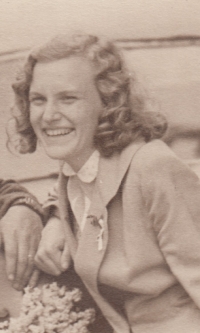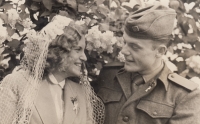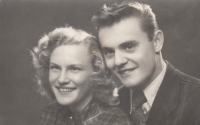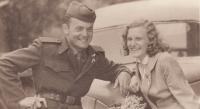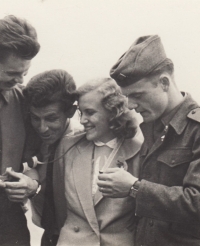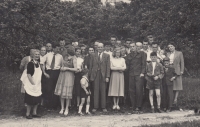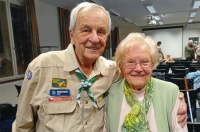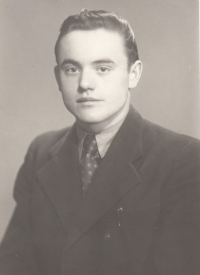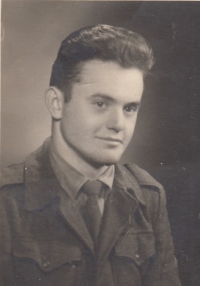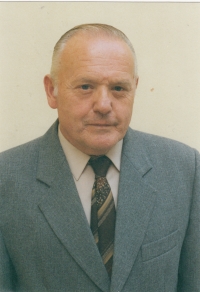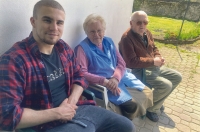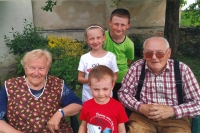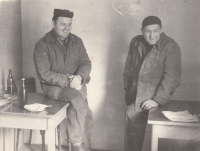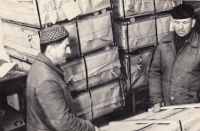Naděje had courage. At 16, she helped political prisoners

Download image
Naděje Dlouhá was born as Sochorová on 14 August 1936 in Václavice near Nové Město nad Metují. Her parents farmed ten hectares of land, had cows and a small tractor. Naděje started school in 1942. At that time, they had a Jewish family, the Löwenbachs, who had moved in for racial reasons. Before being transported to the Terezin ghetto, they kept their valuables with them, which they returned for after the war. At the beginning of the 1950s, the Sochors lost their tractor and continued to farm only cattle. Naděje wanted to become a seamstress, but the party committee sent her to a peasant school. While working in the printing shop, she met Rene Dlouhy, who was serving a sentence there at the time. After their release, they started dating and got married in 1954. Naděje mediated contact between the two men on trial, one of whom was working in the print shop and the other awaiting trial at large. Thanks to her, they were able to agree to go to court together and actually received a reduced sentence. After their marriage, Naděje Dlouhá and her husband moved to Rousínov in Moravia, where their three children were born. After six years they returned to Nové Město nad Metuji, but they were under constant State Security control. Naděje Dlouhá worked for many years as an assistant to a veterinarian. After November 1989, her husband was involved in municipal politics and in the Confederation of Political Prisoners, dedicated to publicizing the crimes of communism. Naděje Dlouhá was widowed in December 2021. In 2023, she lived alone in a family house in Nové Město nad Metuji.
